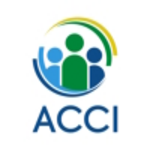
2024 Annual Conference
May 21–23, 2024
Hyatt Regency Milwaukee, Milwaukee, WI, USA
IMPORTANT NOTICE: The date, time, and room assignment of YOUR presentation is SUBJECT TO CHANGE.
Proposal authors can use this tool to see where they have been placed in the program agenda for an Oral or Poster Session.
Scroll down to search by the Submitter or Author Name, by Date/Time, or by Keywords.
Confirm your place in the schedule by following the instructionss that were emailed to you. Each presentation must have a separate paid registration. Contact the ACCI office immedicately by email at admin@consumerinterests.org to report any conflict, all corrections to the details of the presentation (including author names and the order they are listed as this is how it will be in the final program), or if you have any questions. Please be sure to reference the session title(s), date(s), and time(s) when you contact us.
B1b Exploring Earned Wage Access as a Liquidity Solution
Short Description
Earned wage access (EWA) – also known as on-demand pay– is a solution to address short-term liquidity needs by allowing users to draw some or all of their wages as they earn them, ahead of their next scheduled payday. As a relatively new product, providers, consumers, and policymakers are all trying to better understand how the service works for users. This study, conducted by the Financial Health Network, seeks to better understand not only how but why consumers are choosing to use EWA, how it complemented or changed their financial behavior, and how using EWA impacted their financial health. To answer these questions, we collected qualitative data through a 3-day online discussion board of 21 users of direct-to-consumer and employer-integrated EWA platforms. Through this qualitative study we find that study participants use EWA primarily to pay bills on time and cover unexpected expenses. Participants tend to prefer EWA to available alternatives including payday loans, intentionally incurring late fees or overdraft, or borrowing from friends and family. Finally we find that while using EWA increased participants’ ability to pay their bills and cover expenses in the short-term, it does not solve for underlying the challenges of income insufficiency and precarity.
Type of presentation
Accepted Oral Presentation